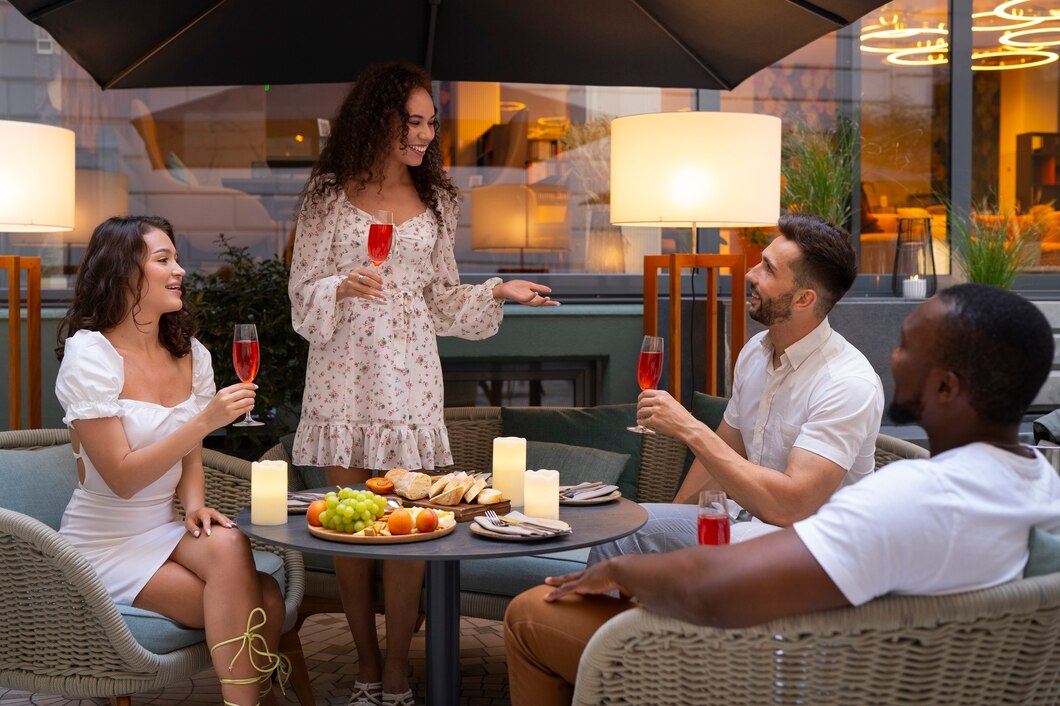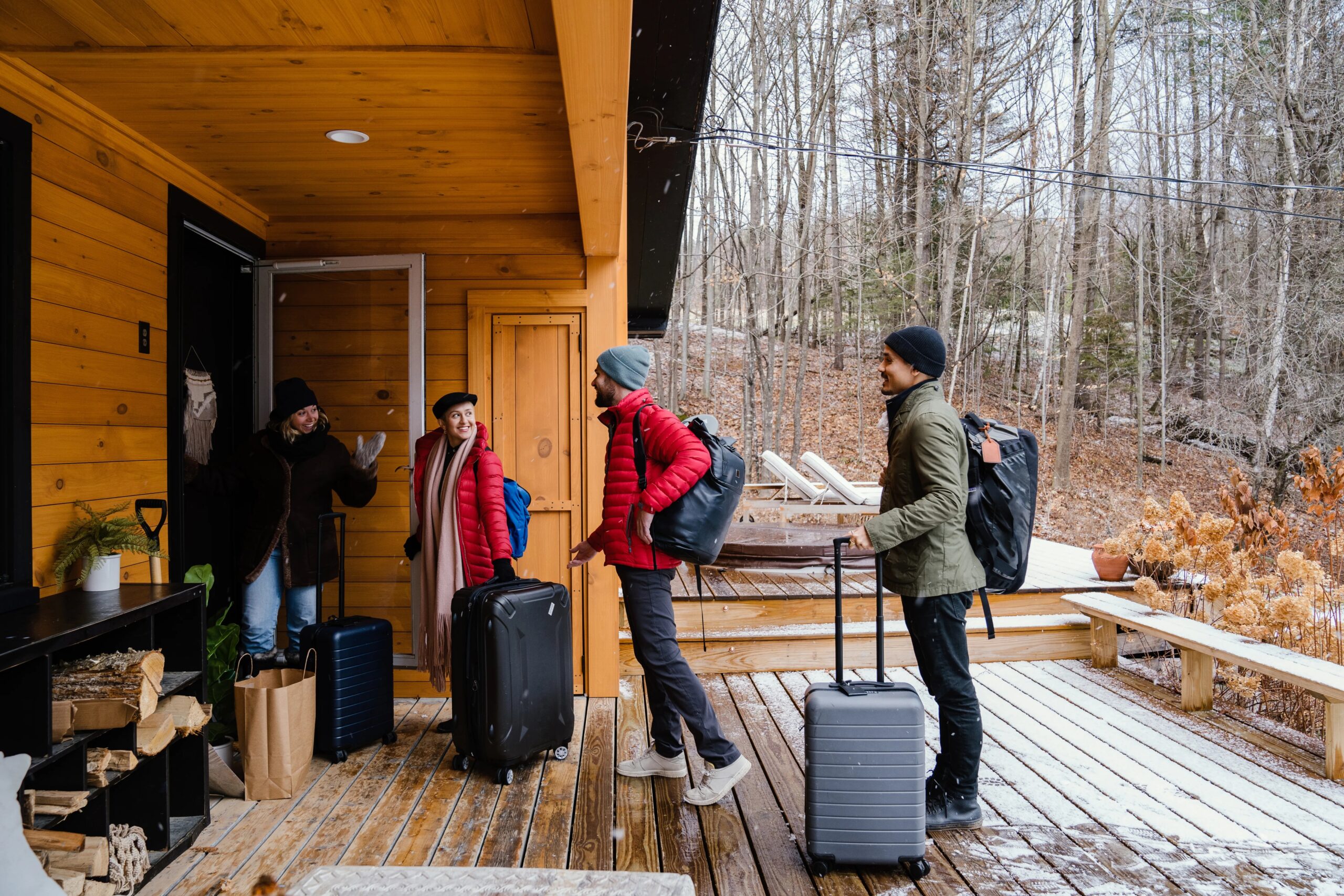The world’s ultimate scenic train routes, from the Swiss Alps to the African savannah, are unforgettable. Hop aboard the Blue Train or the Trans-Siberian Railway. Both trips offer amazing views and beautiful landscapes. Now! So grab your bags, snag that window seat, and make a once-in-a-lifetime trip happen!
Check out our blog for essential budget accommodation tips. Find the best affordable travel stay for your next trip. We compare hostels and Airbnbs based on cost, social vibe, privacy, location, security, and work-friendliness. Discover what suits you best!
Cost Comparison: Which Is More Budget-Friendly?
Hostel Pricing: The Cheapest Way to Travel
Hostels are well-known for offering the most budget-friendly accommodation, especially for solo travellers and backpackers.
Dormitory Beds: £10-£25 per night, depending on location.
Private Rooms: £25-£50 per night, suitable for couples or those wanting more privacy.
Inclusions: Free Wi-Fi, communal kitchen, luggage storage, and sometimes complimentary breakfast.
Discounts: Many hostels offer discounts for long-term stays.
Airbnb Pricing: More Variety but Higher Costs
Airbnb prices vary significantly based on the type of accommodation:
Shared Room: £15-£30 per night, similar to hostel dorms but often without the social aspect.
Private Room: £30-£60 per night, ideal for solo travellers seeking privacy.
Entire Apartment: £50-£100 per night, great for families or long-term stays.
Hidden Costs: Cleaning fees and service charges can add £10-£20 per booking.
Discounts: Some hosts offer weekly or monthly discounts for long-term stays.
Verdict: Which One Wins?
Hostels are the clear winner if you’re backpacking on a tight budget. However, for extended stays or group travel, Airbnb might offer better value.
Social Atmosphere: Meeting Fellow Travellers

Hostels: A Social Hub for Travellers
One of the most significant advantages of staying in a hostel is the social environment:
Common Areas: Lounges, shared kitchens, and bars where travellers can meet.
Organised Activities: Pub crawls, walking tours, and group dinners encourage interaction.
Best for: Solo travellers and those looking to make new friends.
Airbnb: Privacy Over Socialising
Airbnbs, private rooms, and apartments are designed for independent travellers.
Limited Interaction: Guests cannot meet others without staying with a host.
Some Social Hosts: A few hosts enjoy engaging with guests and offering local insights.
Best for: Digital nomads, couples, and those who prefer solitude.
Verdict: Which One Wins?
Hostels are unbeatable for a vibrant, social experience. If privacy is your priority, Airbnb is the better choice.
Privacy and Comfort: Do You Need Your Own Space?
Hostels: Shared Spaces, Less Privacy
Dorms: Sleeping in shared rooms involves snoring, lights, and noise.
Bathrooms: Often communal, with mixed levels of cleanliness.
Private Hostel Rooms: Offer more comfort but cost almost as much as an Airbnb private room.
Airbnb: Your Own Space, More Comfort
Private Apartments: Full control over your environment.
Better Amenities: Kitchens, washing machines, and private bathrooms.
Noise Control: No risk of loud roommates disturbing your sleep.
Verdict: Which One Wins?
For privacy and comfort, Airbnb is the winner. However, some hostels now offer premium private rooms that rival Airbnb stays.
Location and Accessibility: Convenience Matters

Hostels: Typically in City Centres
It is located near major attractions and transport hubs.
Easy access to nightlife, markets, and public transport.
Some may be noisy due to central locations.
Airbnb: More Variety in Location
It can be found in quieter residential areas.
More options for unique stays, such as countryside cottages or beachfront homes.
Some properties may be far from public transport, requiring taxis or rental cars.
Verdict: Which One Wins?
Hostels tend to have better locations for easy access to key tourist sites. Airbnb offers more choices if you prefer a quieter stay away from busy streets.
Security and Safety: Which Option Is Safer?
Hostels: Mixed Security Levels
Most have lockers for valuables, but you need to bring your lock.
Shared rooms mean strangers coming and going.
Well-established hostels often have 24/7 reception and CCTV.
Airbnb: More Secure for Personal Belongings
No strangers sharing your space.
Some hosts offer secure key access and security cameras.
Always check reviews to ensure the area is safe.
Verdict: Which One Wins?
For solo travellers concerned about theft, Airbnb offers more security. However, many budget accommodation tips recommend hostels with lockers and good reviews for a safe stay.
Work and Remote Travel: The Best Option for Digital Nomads

Hostels: Great for Short Stays, Not for Work
Wi-Fi Quality: It can be hit-or-miss and is often slow due to multiple users.
Noisy Environment: Dorms and common areas may not be ideal for remote work.
Airbnb: The Better Choice for Working Remotely
Reliable Wi-Fi: It is easier to find listings with high-speed internet.
Quiet Environment: No dorm mates making noise while you work.
Long-Term Discounts: Many Airbnbs offer lower rates for weekly or monthly stays.
Verdict: Which One Wins?
For digital nomads, Airbnb is the better option for stable internet and a distraction-free workspace.
Conclusion: Which One Should You Choose?
To determine whether to choose a hostel vs Airbnb, it helps to know what our travel priorities are:
- Choose a hostel if you are a lone traveller seeking the least expensive alternative and a social environment.
- Airbnb is better if you value privacy, comfort and a less noisy setting.
- Airbnb is usually the wiser financial move, offering discounts for more extended stays.
Considering these tips about budget accommodations, you could find the best economical lodging for your travels! Whether you thrive in the communal energy of hostels or prefer the independence of an Airbnb, your ideal travel experience is just a booking away!

